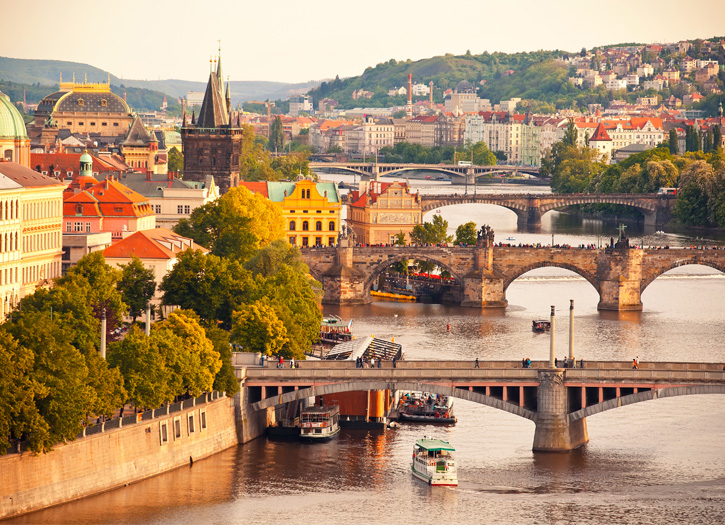The COVID-19 pandemic in the Czech Republic is part of the worldwide pandemic of coronavirus disease 2019 (COVID-19) caused by severe acute respiratory syndrome coronavirus 2 (SARS-CoV-2). The first three confirmed cases in the Czech Republic were reported on 1 March 2020. On 12 March, the government declared a state of emergency, for the first time in the country’s modern history for the area of the entire country. On 16 March, the country closed its borders, forbade the entry of foreigners and issued a nationwide curfew.
The Czech Republic was the first European country to make the wearing of facemasks mandatory from 19 March onwards. COVID-19 testing was made widely available with drive through locations from 14 March, and from 27 March anyone with a fever, dry cough or shortness of breath was eligible for a free test. From 13 April onwards, COVID-19 testing capacity significantly surpassed demand. Contact tracing in the country also included voluntary disclosure of mobile phone position and debit card payments data for previous days and the quarantining of identified contacts.
24 March – A second death was reported: a 45-year-old man died after six days in a hospital in Havířov. The patient was suffering from advanced cancer with metastases to multiple organs. The cause of death was established as multiple organ failure due to cancer but COVID-19 infection accelerated the patient’s death.A third death was reported: a 71-year-old woman died in Všeobecná fakultní nemocnice in Prague. The woman suffered from the chronic obstructive pulmonary disease as well as other illnesses, so it wasn’t immediately clear that she may be COVID-19 positive. Only after being hospitalised the woman informed doctors that her relative recently returned from Italy and was then tested for COVID-19.
30 March – In South Moravia, testing of the so-called “smart quarantine” was started: local travel history of infected persons were to be tracked using data from mobile phones and bank cards. 300 military personnel were deployed to reinforce local health authority for the purpose of tracing patients’ contacts and collecting samples. If this approach is deemed successful by the authorities for diminishing the pandemic, the “smart quarantine” method is planned to replace the existing nationwide curfew policy. The city of Uherský Brod started thorough disinfection of all common areas of apartment buildings and public areas after a significant increase in COVID-19 infections.
6 April – Government eased a number of restrictive measures, e.g. by opening outside sporting grounds (including skiing, shooting ranges, etc.), movement in parks and nature without facemasks and opening of more shops and services (see policies section below).7 April – Government sought extension of the State of Emergency for 30 days, i.e. until 12 May 2020. Chamber of Deputies of Parliament granted extension until 30 April 2020.12 April –
May 11: Shops under 1,000 square meters in size, except for those in shopping centers over 5,000 square meters and those specified to open at a later date, Driving schools, Gyms and fitness centers (but not changing rooms or showers).May 25: Outdoor areas of restaurants, cafes, pubs, buffets, wineries and beer shops with outdoor sales and garden seating areas, barbershops, hairdressers, nail salons, tanning salons, cosmetic salons, massage parlors, museums, galleries, and art halls, zoos (outdoor areas only).
June 8: All shops in shopping centers, shops over 1,000 square meters in size outside of shopping centers, indoor areas of restaurants, cafes, pubs, buffets, wineries and beer shops, hotels and other accommodation providers (and their restaurants and cafes), taxi services, tattoo and piercing studios, theaters, castles, chateaux and other cultural activities according to the current regulations, mass events for a specified number of people, cultural, business, and sports events for less than 50 people. As of 22 May, up to 40% of infected miners had no symptoms with many others reporting tiredness as the only symptom. Meanwhile, a school was temporarily closed down in nearby city of Havířov after a child of one of the miners tested positive. Apart from the coal mining hotspot, authorities deemed situation in the rest of the country as stable, except for Prague where they identified several small clusters with community spread.







Add Comment